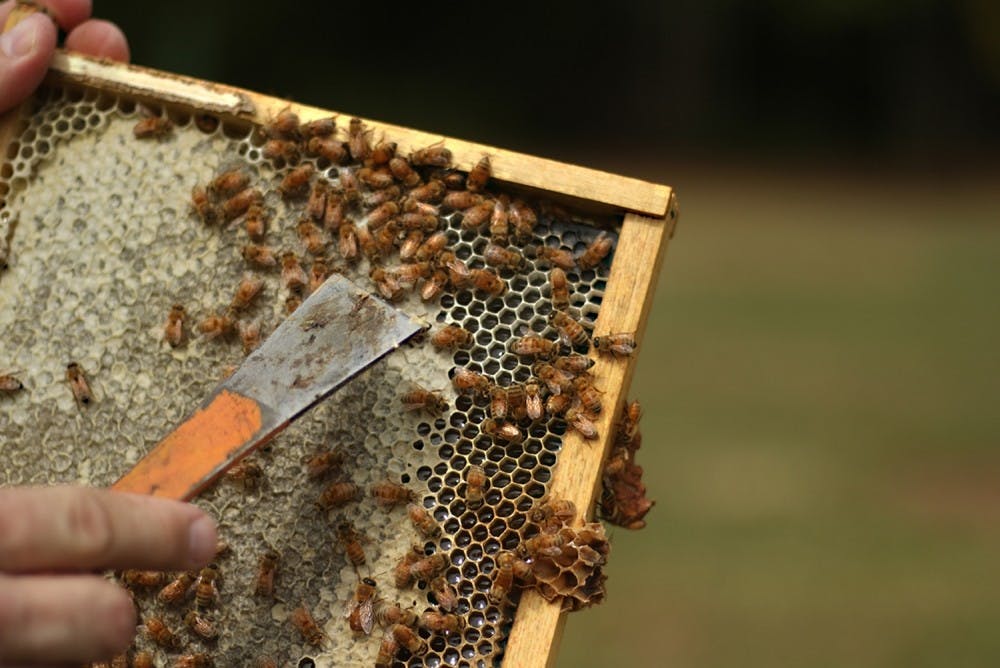Correction: NCPIRG hosted the event with assistance from Edible Campus.
People become accustomed to the habit of expecting Thanksgiving to simply come along every November, but in the words of North Carolina Public Interest Research Group's slogan, “No bees, no Thanksgiving.”
State senator Mike Woodard spoke at the Bee-Saving event, hosted by NCPIRG and Edible Campus UNC behind Davis Library as part of the Save the Bees campaign.
“One in every three bites of food we eat is dependent on pollinators. However, pollinators have been in decline for decades now,” Woodard said. “In 2015 alone, there was a 42 percent loss of pollinators. Historically, going back to 1945, there were 4.5 million beehives in the United States." Today, there are around 2 million.
Woodard said one of the main factors contributing to the decline of bees is pesticide exposure, particularly neonics.
“The annual loss of honey bees from pesticides in their environment would fill Kenan Stadium seven feet deep with dead bee carcasses,” Woodard said.
The effects of neonics are rather severe. It is a new insecticide that affects the central nervous system of insects which paralyzes them and kills them. Taylor Griffin, the general manager of a local restaurant, Living Kitchen, was worried about the unfettered use of pollinator killers.
“Since Living Kitchen is a plant-based operation, without bees, our restaurant will be 100 percent obsolete,” Griffin said. “Eat local, be conscious of what’s in your food, and strive to keep the hive alive.”
Although bad pesticide choice isn’t the only factor stunting pollinator species, it is a major culprit. But hope isn’t lost, as awareness continues to build. Woodard highlighted two steps in the solution to the bee problem.




